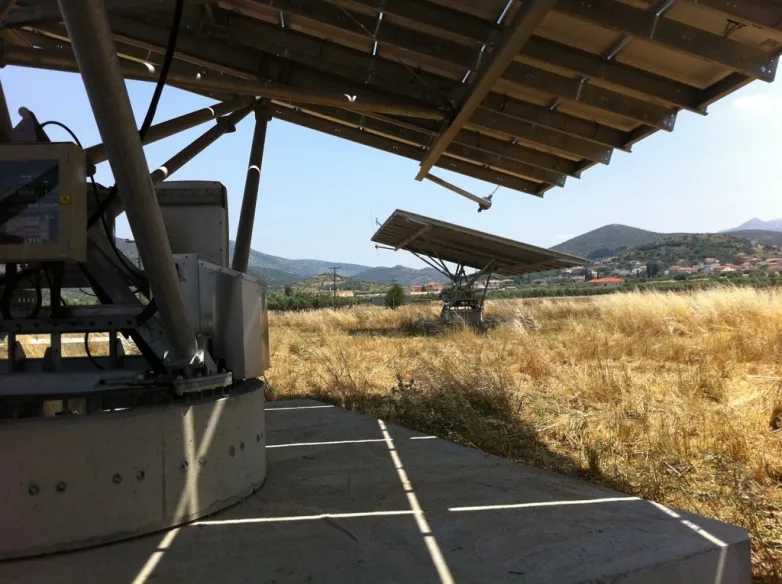New reduced solar price in Greece but capability fails once again as parliament passes EUR100m EV subsidy plan
- The rate tariff agreed by German business ABO Wind for two 10 MW solar projects in Igoumenitsa was available in a tender which alloted just 142 MW of generation ability, well except the hoped-for 482 MW. It is really hoped a slimline licensing process, to be used in the next purchase round, will address the problem.

The latest round of renewable energy tenders in Greece saw wind beat solar, the former virtually hitting its 481.45 MW generation capacity target while solar fell well short of the hoped-for 482 MW, with just 142 MW assigned.
Solar projects up to 20 MW in scale were eligible for Monday's tidy energy tender yet the demand to hold electricity generation and also grid link licenses once more ensured the modern technology was under-represented. By contrast, some 472 MW of wind ranches were designated in an exercise which drew in bids for 748 MW of capacity in projects which could be approximately 50 MW in scale.
The tender did, however, create a brand-new record low price for Greek solar energy of EUR0.04584/ kWh, for two 10 MW projects intended in Igoumenitsa, northwestern Greece. That tariff undershot the previous mark of EUR0.04911, concurred for a 200 MW facility under growth in the mining area of Ptolemaida.
The authorities will certainly really hope the introduction of a new, digital licensing regime-- which will relate to the next tender-- will increase the number of solar projects eligible to participate. The incumbent permitting routine at one factor brought about a 6 GW backlog of licensing applications as well as an estimated 18-month waiting time for generation licenses.
Winning projects
Germany's ABO Wind, regardless of its name, was the most significant champion in the PV auction, scooping up more than a 3rd of the assigned capability throughout five projects in Igoumenitsa, each of around 10 MW ability. The German renewables developer lagged the brand-new record low solar price, which it bid for 2 of the projects awarded, alongside tariffs of EUR0.04586, EUR0.04587 and also EUR0.04883/ kWh.
EDF-owned Heliothema protected 2 11.9 MW solar farms in Thiva, central Greece, for EUR0.053/ kWh, as well as residential company Metka-Egnatia, part of the Mytilineos Group, landed four projects with a complete capability of around 11 MW. Of the 39 successful solar project proposals, the highest possible power tariff was EUR0.06245/ kWh for an average EUR0.04981. The 15 successful wind project proposals had power rates ranging from EUR0.05386 to EUR0.0577.
EVs cash money hand-outs
The Greek parliament has also passed an electrical car subsidy (EV) package which will certainly reimburse approximately EUR6,000 of the purchase price of vehicles, motorcycles and bikes.
Under the EUR100 million expense voted via last week, vehicle drivers will have the ability to recover as much as 20% of the non-VAT acquisition rate of electric autos costing approximately EUR30,000 as well as 15% of the cost of a lot more costly cars, according to a press release issued by the Ministry of Environment as well as Energy. Vehicle drivers will certainly additionally get EUR500 towards the price of mounting EV charging factors in the house. Electric motorcycles will certainly get a 20% aid and electrical bikes 40%, with a EUR6,000 aid cap across the board. Impaired individuals will certainly get additional subsidy under the scheme, including for the purchase of electric mobility devices.
Charging network
In tandem with the e-mobility aid plan, preacher for framework as well as transportation, Kostas Karamanlis, told parliament: "This year, the number of EV charging terminals will reach regarding 2,000, about 12,000 in 2025 and also 25,000 in 2030."
The largest charging network in the country currently is run by the Blink Charging Hellas joint endeavor created by U.S.-based Blink Charging and also Greece's Eunice Energy Group (EEG). The network, which presently offers a charging factor every 50 kilometres, is among minority in Europe to be powered entirely by renewable energy.
Blink Charging Hellas manufactures its Blink tech battery chargers in Greece as well as EEG subsidiary We Energy-- the nation's initial 100% renewables electricity company-- supplies the power.
Also read

